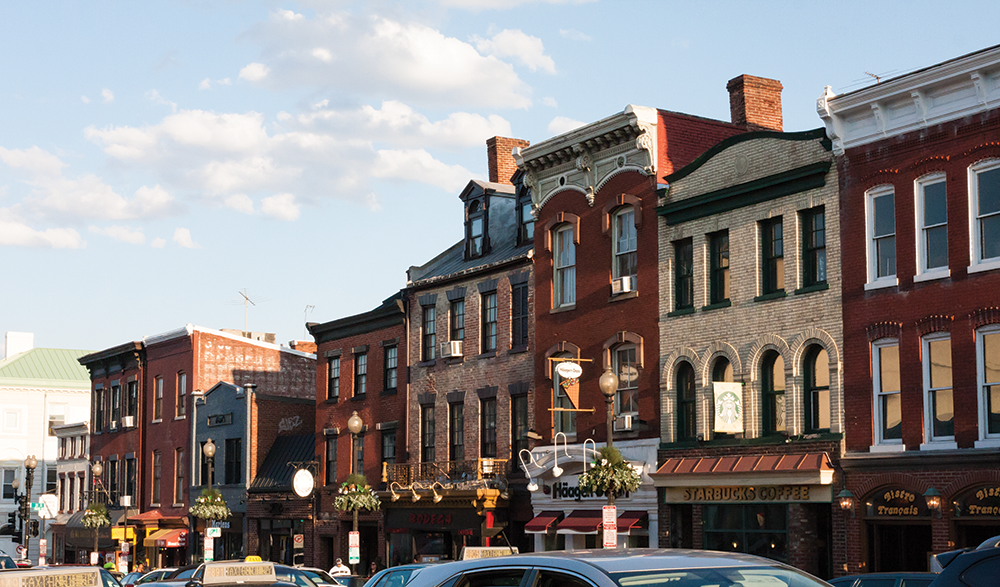
The lifting of the moratorium will allow establishments in Georgetown and the wider D.C. area to apply for liquor licenses April 11.
The Alcoholic Beverage Control Board recently lifted Georgetown’s 27-year-old restaurant liquor license moratorium, allowing establishments in the District to begin applying for licenses April 11.
The decision will not affect the limit of liquor licenses for nightclubs and taverns, which remains at six, because of a separate Washington, D.C. law that cannot be amended or rescinded by the ABC Board.
The moratorium was implemented in 1989 in response to noise and vandalism complaints from Georgetown residents regarding patrons of establishments that were permitted to sell alcohol.
The moratorium capped the number of restaurants that could attain a class C/R license, which permits the sale of beer, wine or spirits on premises. The only way for a new business to obtain a license was to purchase one from another restaurant, at prices that could run upward of $10,000.
Alcoholic Beverage Regulation Administration Public Information Officer Jessie Cornelius said the ABC Board took into account public opinion and current neighborhood conditions in its decision to lift the moratorium.
“A hearing was held by the Board to receive public comment on Feb. 24 and written comment was accepted on the issue through March 4,” Cornelius wrote in an email to The Hoya. “Input received from Georgetown community and business groups supported lifting the cap on restaurant licenses because the issues of noise, trash and vandalism — which were the original catalysts for the moratorium — had improved.”
The recent change in regulation is largely due to support given by the Advisory Neighborhood Commission 2E, which represents Georgetown, to lifting the moratorium.
Advisory Neighborhood Commissions are advisory boards that provide official citizen representation to governmental bodies. There are 47 commissions in the District run by volunteer commissioners who are popularly elected and serve two-year terms. The Georgetown commission specifically reviews all development in the historic district as well as all liquor licenses.
Vice Chair of ANC 2E Ed Solomon expressed support for the end of the moratorium, stating that it reflects a balance between restaurants and stores in the neighborhood.
“The time was right. The moratorium was enacted at a time when the community felt that there had to be some type of control on what was happening 25 or so years ago,” Solomon said. “Now we have a good mix of retail and restaurants here and we would like to see new restaurants come in that the community would support as well as the rest of the city.”
Bill Starrels, another ANC 2E vice chair, said the decision reflects a significant change in the past 27 years — drinking ages are now uniform at 21 years old in the wider District area, which was not the case before the moratorium was enacted.
“To have a beer back then across the Key Bridge you had to be 21 years old, but you could come across the bridge into Georgetown and only be 18 years old to have a beer,” Starrels said. “If you look at the history in terms of where things were with the drinking age and the also demographics you’ll see why it made sense for the moratorium to be set years ago and today it is not that needed.”
Restaurant Association of Metropolitan Washington legal counsel Andrew Kline said the time had come for the ban to be lifted.
“There was generally support for the lifting of the moratorium this time around. There was a realization by the Advisory Neighborhood Commission and from those in the community that it was serving no purpose,” Kline said. “I don’t think it will change much. There were many licenses not being used that were still available.”
Tom Birch, a third ANC 2E vice chair said the end of the moratorium will not necessarily result in an immediate influx of new restaurants and bars to the neighborhood.
“I expect that we are not going to see an immediate change overnight because all of this takes time,” Birch said. “They can get a liquor license just by applying for it, but they are going to have to find a place to locate and get the capital together and have a business plan and so forth.”
Birch said he hoped that the end of the moratorium will bring positive change to the neighborhood.
“I do think that it is going to create more of a community of really high-quality restaurants,” Birch said. “It’s great that the whole community is so interested in what has been happening, and what’s so important is that the business community and the residential community were in absolute agreement on this issue and came together to work out a solution.”
Solomon emphasized the benefits of lifting the moratorium on Georgetown’s restaurant scene and business community.
“We look forward to the opportunity we are giving to many of the new chefs and entrepreneurs to come to Georgetown,” Solomon said. “It’s going to be a win-win for the residents, the tourists and the businesses, and I think that it will give especially the local community an opportunity to see new restaurants come into our community.”
Restaurateur Ian Hilton, owner of the French bistro Chez Billy Sud on 31st Street, said the end of the ban will attract new businesses to Georgetown, benefitting the neighborhood as a whole.
“The lifting of the moratorium will likely draw more restaurants into the neighborhood. I think everyone knew it would pass. I think it’s a good thing,” Hilton said. “Restaurant operators will look at Georgetown who might not have done so in the past.”




















